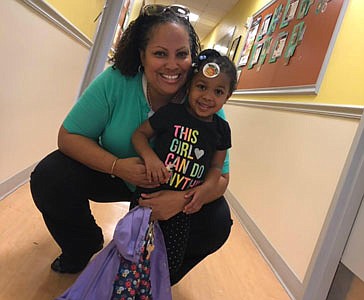November was National Adoption Awareness Month, which came about as an effort to encourage families to consider adopting children in the foster care system.
First introduced in 1976 by then Massachusetts Governor Michael Dukakis as National Adoption Week, who wanted to help find forever homes for the massive number of children in foster care.
Former President Gerald Ford made the initiative a proclamation due to the large number of states participating in the week. Thus, the month of November which is usually associated with
Thanksgiving— a time for families to come together over food, fellowship and football— was proclaimed as National Adoption Month in 1990 by then President George H.W. Bush.
Adoption is a great option for all families, especially African-American families who typically “take in” children as a regular practice. The informal practice of “adopting” children began in the United States when black families were often destroyed by the system and practice of slavery. Slaves were sold and traded, so families were broken up, leaving children behind in need of care.
Following slavery, Jim Crow and other national segregation policies discriminated against blacks, denying them adoption services afforded whites by adoption agencies and institutions, resulting in many black children in need of guardianship.
According to The Adoption History Project at the University of Oregon, “In some states with large African-American populations, such as Florida and Louisiana, not a single African-American child was placed for adoption by an agency for many years running as recently as the 1940s.”
The practice of caring for children that may not have been biologically related, was prevalent and continues today.
Nearly 23 percent of African-American children are being raised by a grandparent due to a number of socio-political and sicio-economic issues— mass incarceration, health issues, divorce, unemployment. Black folks step up when our children need us and many children we may not know need us now.
There are 428,000 children in foster care in the United States and more than half of them are children of color. Half of the children are African-American, most of them are boys and a quarter of the children are over age six. These are the children who are in foster care long-term.
In 2015, 670,000 children spent time in foster care and that number is growing. If we consider the number of black children available for adoption through private agencies, then It is clear that the agencies are teeming with black children that need good homes. Black and brown children are the least likely to be adopted and disproportionately age out of the foster care system.
Thus, it is imperative that black people, who have a history of informal adoption practices, consider adopting children as an option.
As an adoptive parent from a family with a history of adoption on both sides, I often say if you have a lot of love, are financially and emotionally stable and have good sense, then adoption is for you.
When I was in the process of adopting, I heard terrible things from so-called friends, “You don’t know what you’re getting,” and “Adopted kids are messed up,” or “Adopted kids have a hard time bonding with their families.” My response was always, “The prisons are full of people who know their parents,” and “As an educator, many are messed up and it isn’t because they’re adopted,” or “Adopted children aren’t the only children who have a hard time bonding with their parents.”
This false idea that if you have biological children, then you won’t have any problems is not only ridiculous but disingenuous. Adopted children are children in need of unconditional love, guidance, commitment and stability and if you have it to give, then why not?
I can honestly say adopting my daughter was the best decision I have ever made. I consider it a privilege to be her mother and she has added so much value to my life, that I cannot imagine my life without her in it.
I look forward to helping to guide her, encouraging her to follow her dreams and helping her reach her goals while becoming a thoughtful, decent and productive human being. Who better than black folk with our history of informal adoption practices and remarkable resiliency in the face of continuous adversity, to give a black child a greater chance at a decent life?
Which leads me back to my original point. Adoption is a great option for black folk. It can be difficult and is unnecessarily complicated, but it’s absolutely worth it.
Nsenga K. Burton, Ph.D. is the entertainment and culture editor for the National Newspaper Publishers Association (NNPA). She is founder & editor-in-chief of the award-winning news blog The Burton Wire, which covers news of the African Diaspora. Follow her on Twitter @Ntellectual or @TheBurtonWire.
